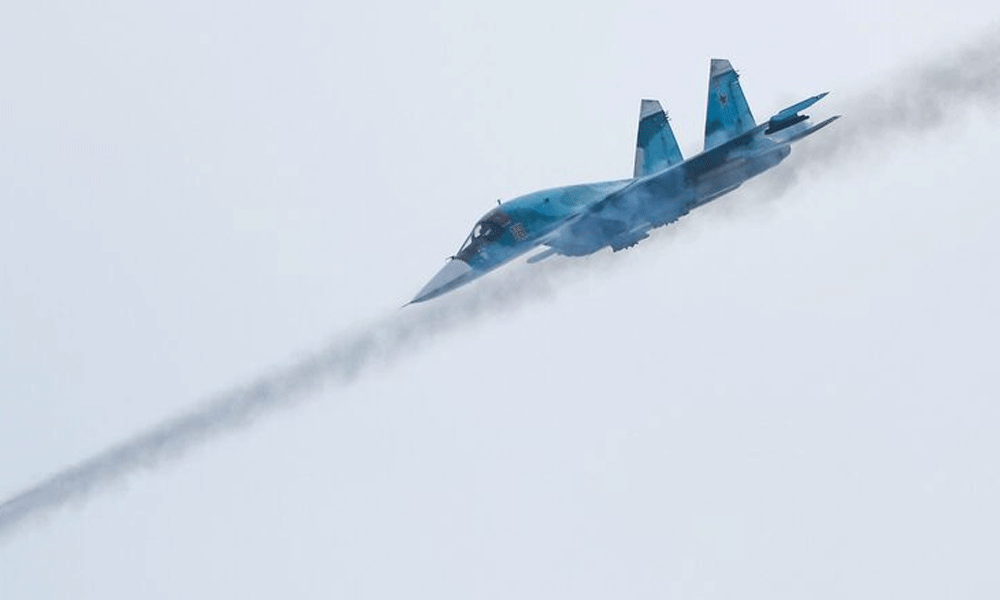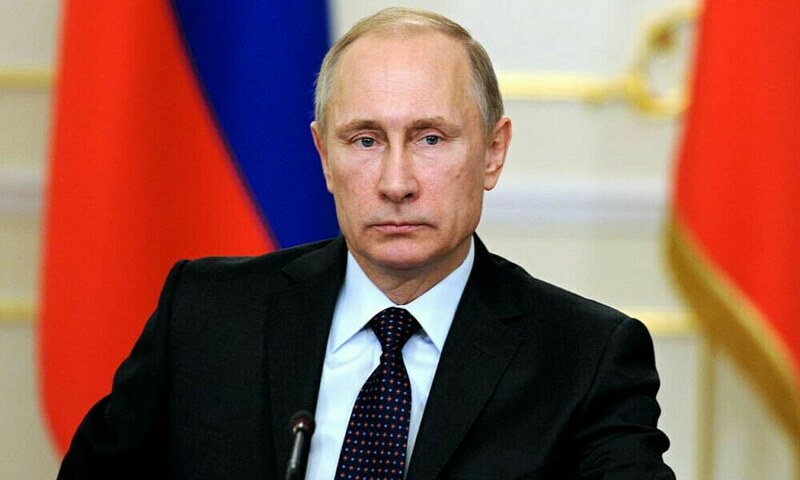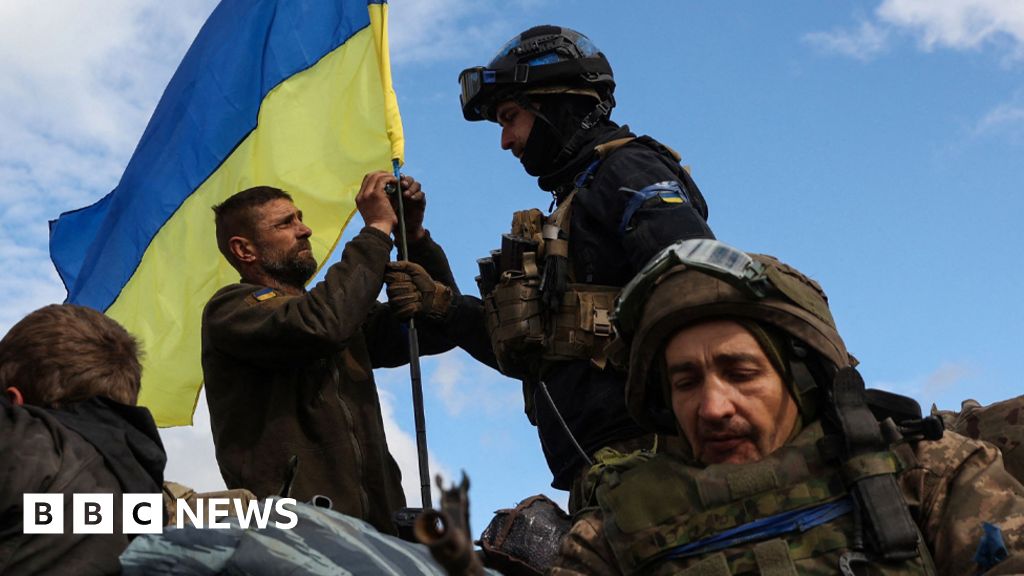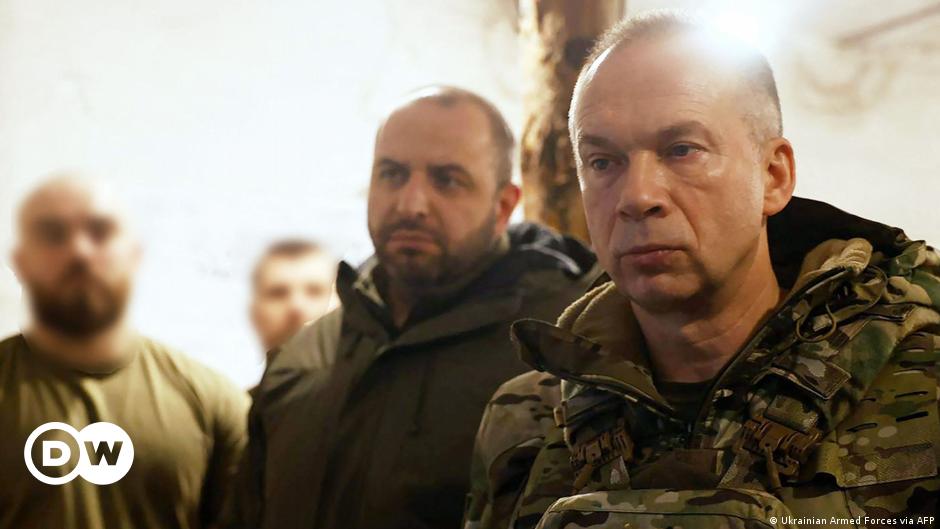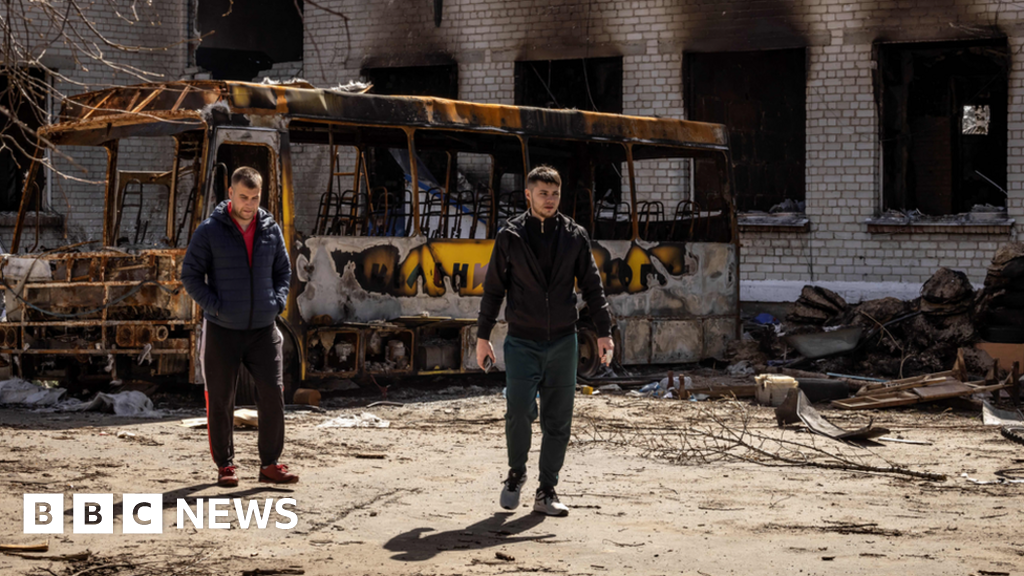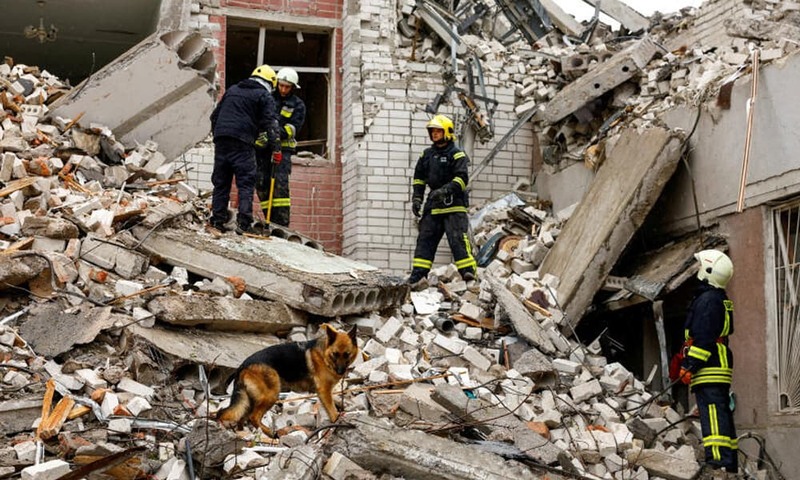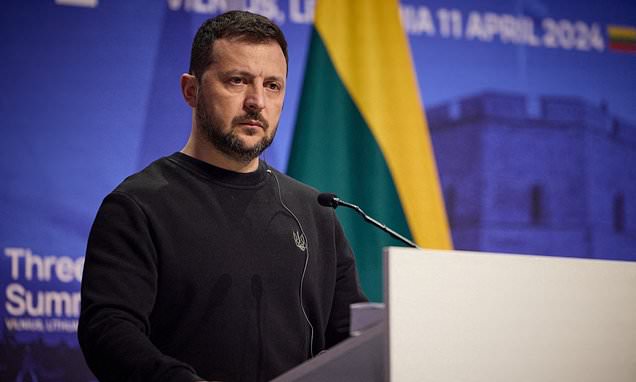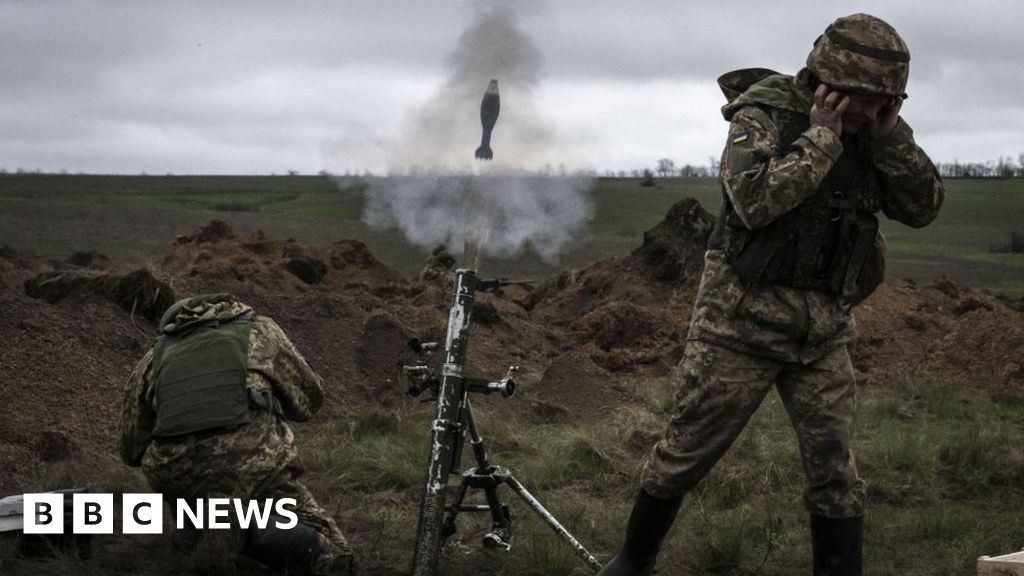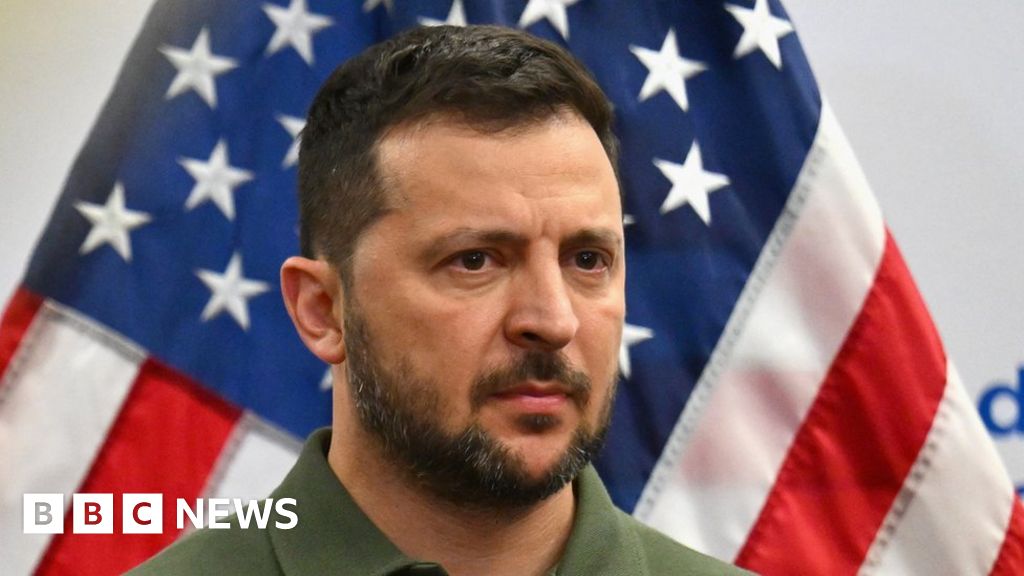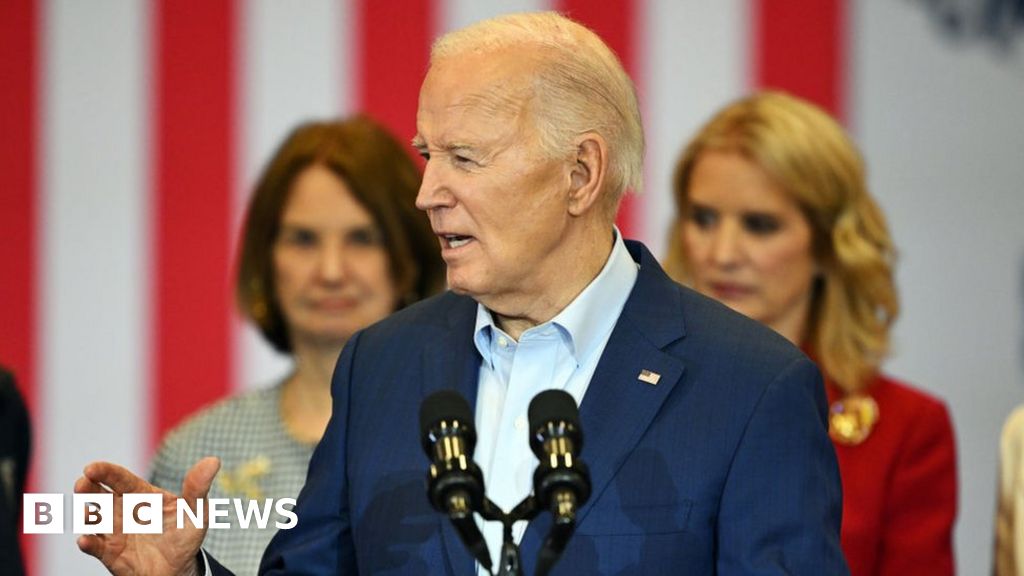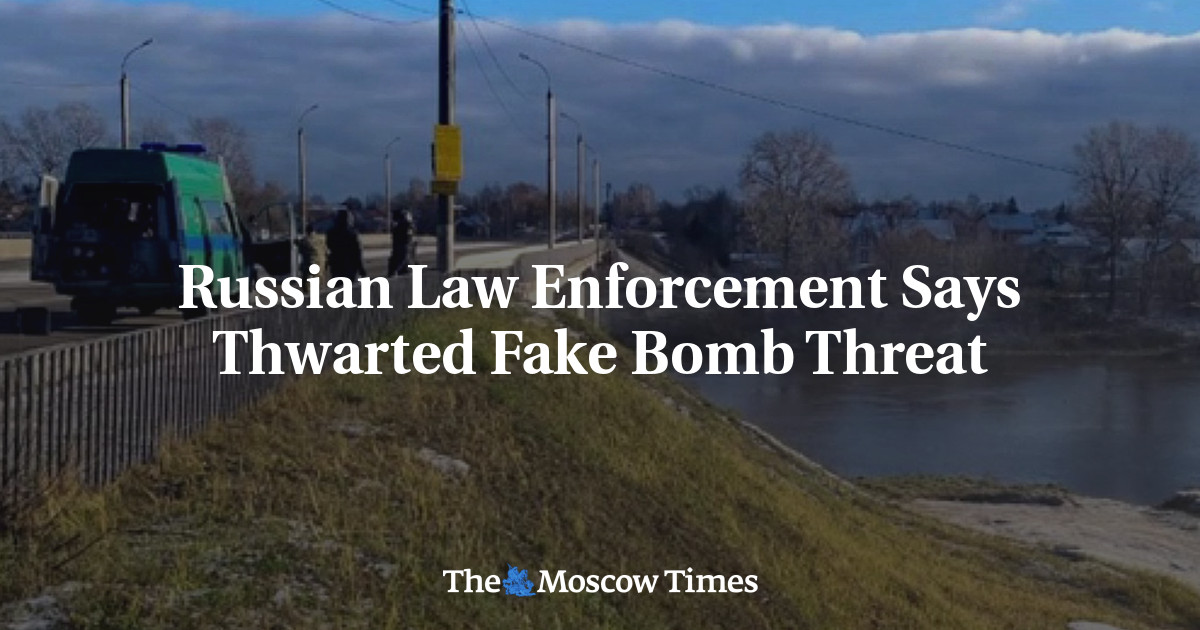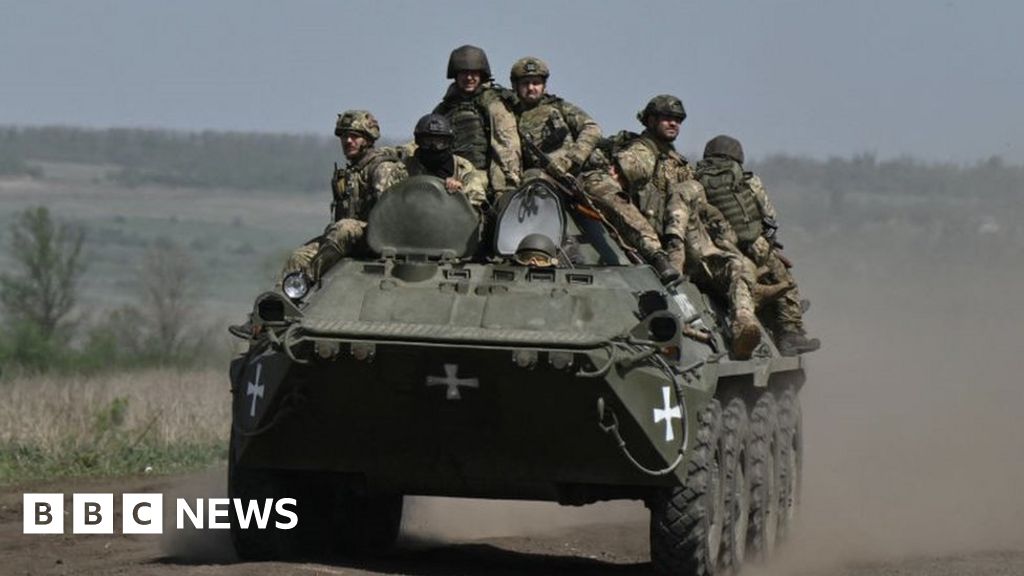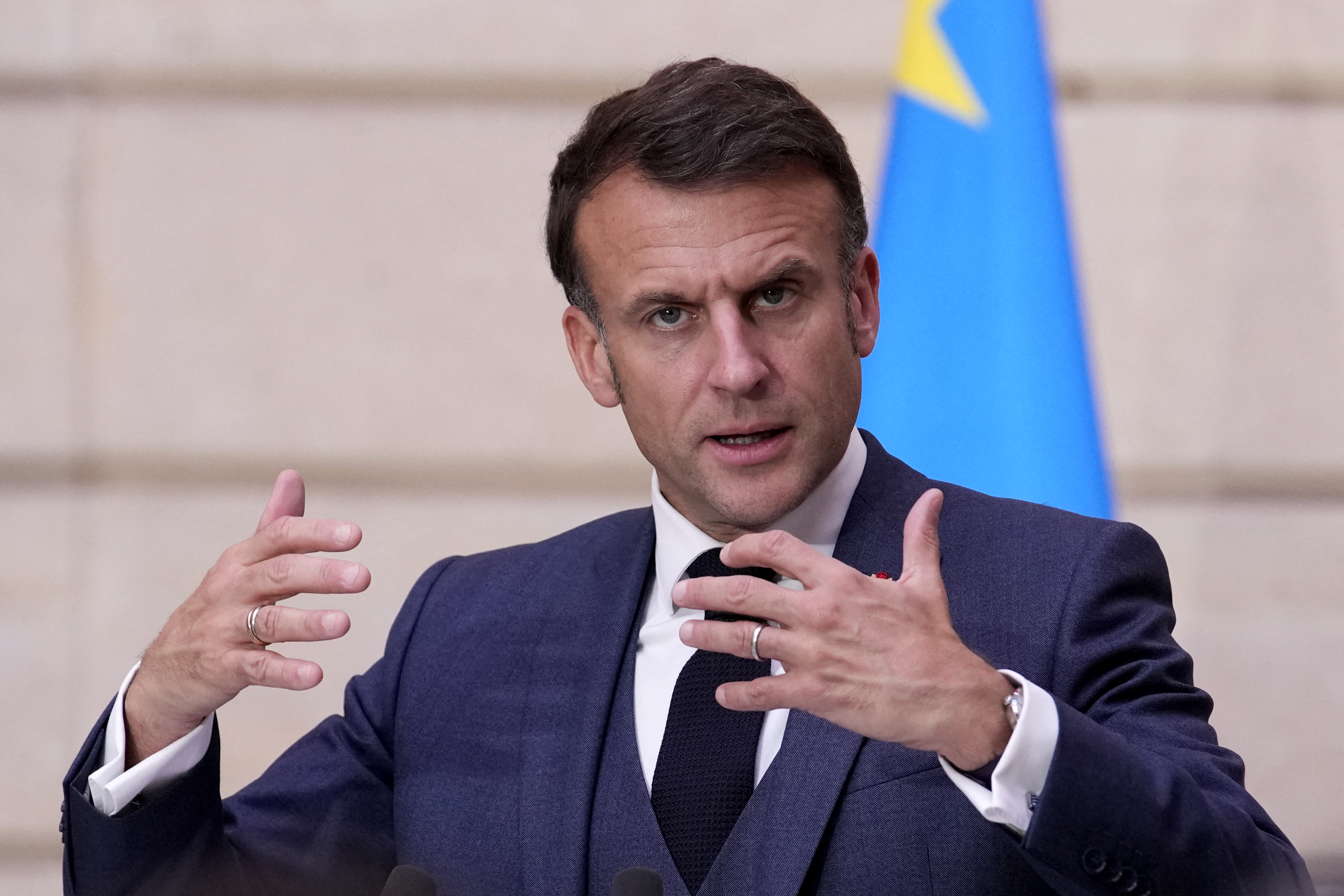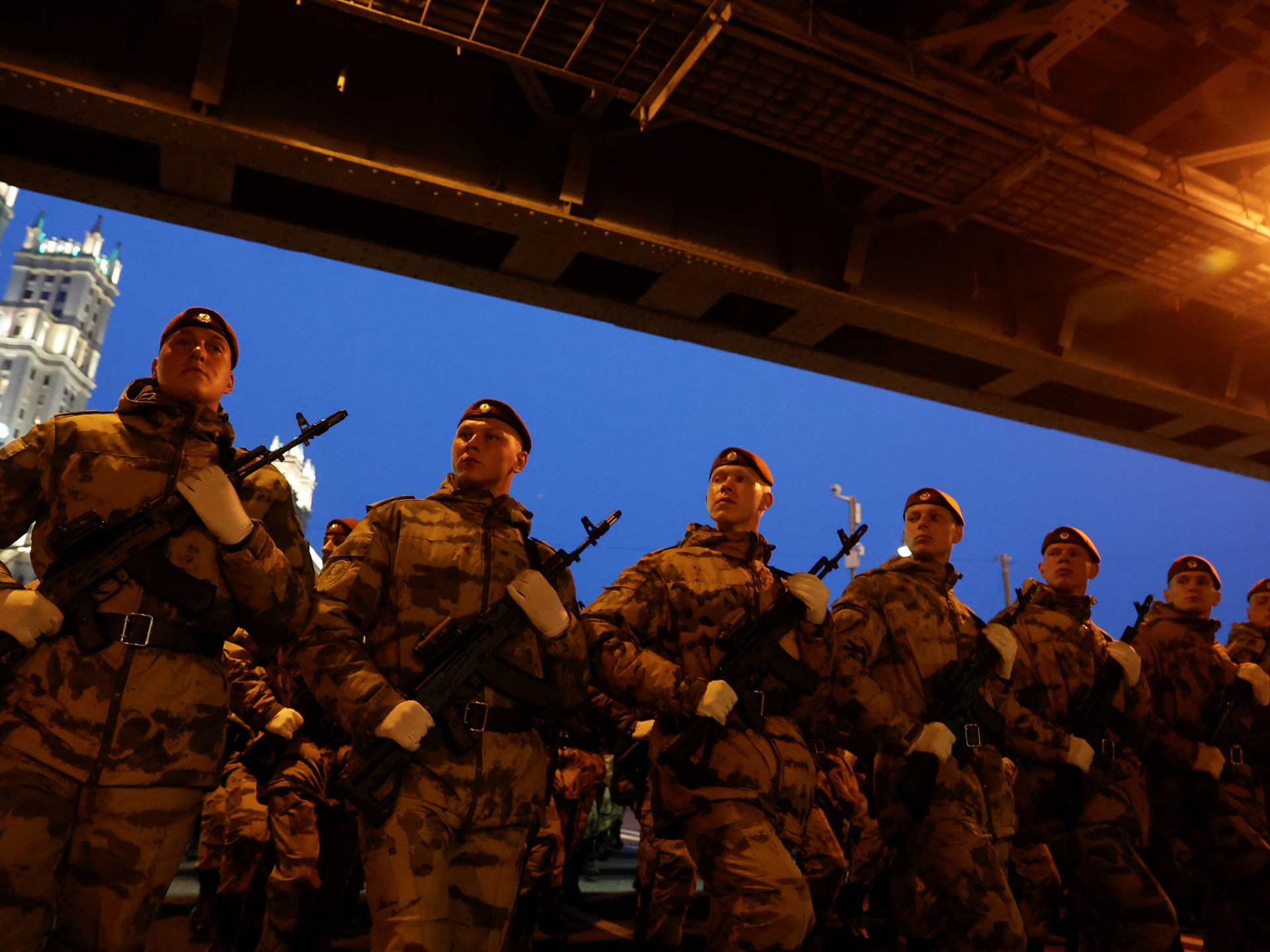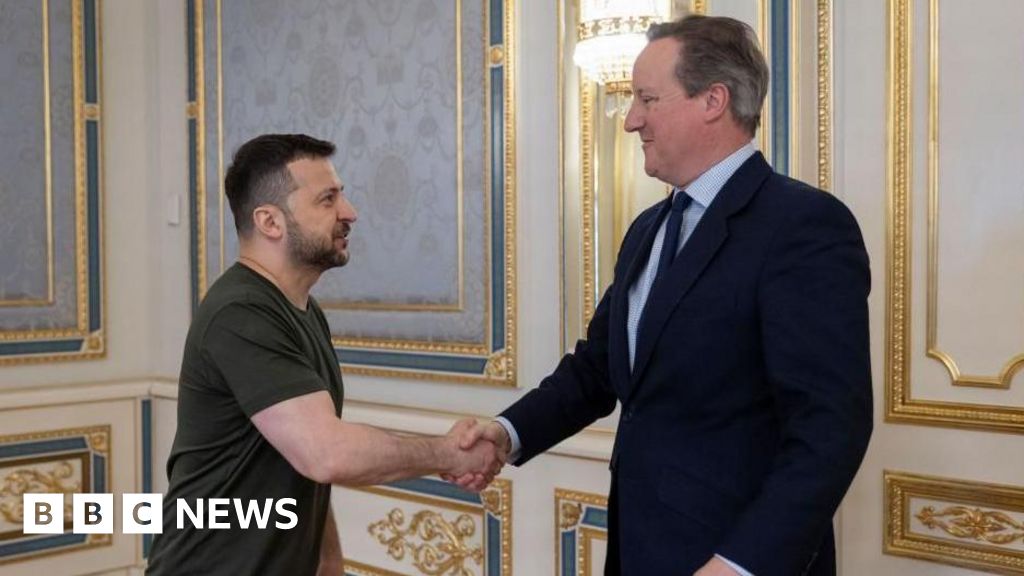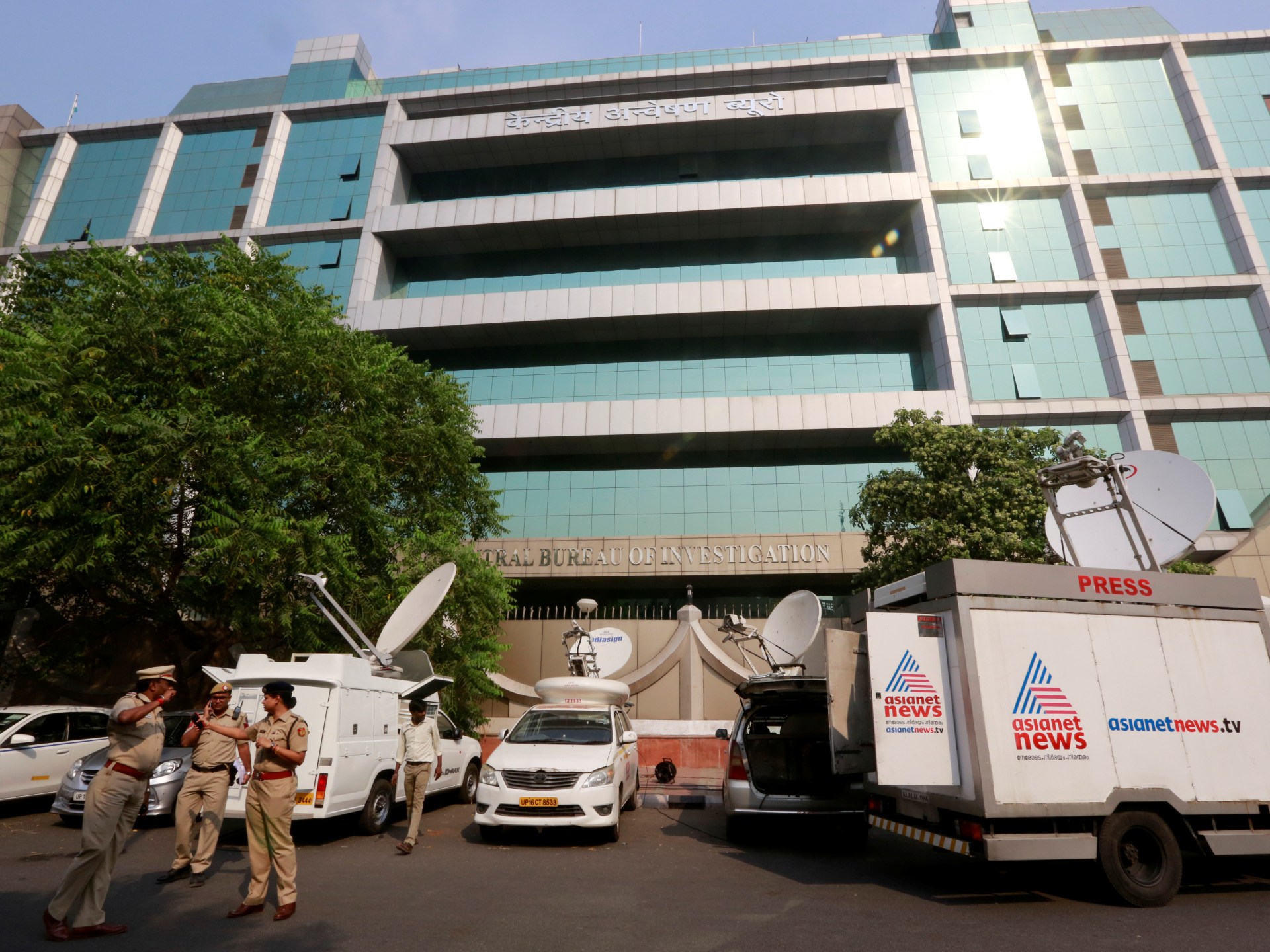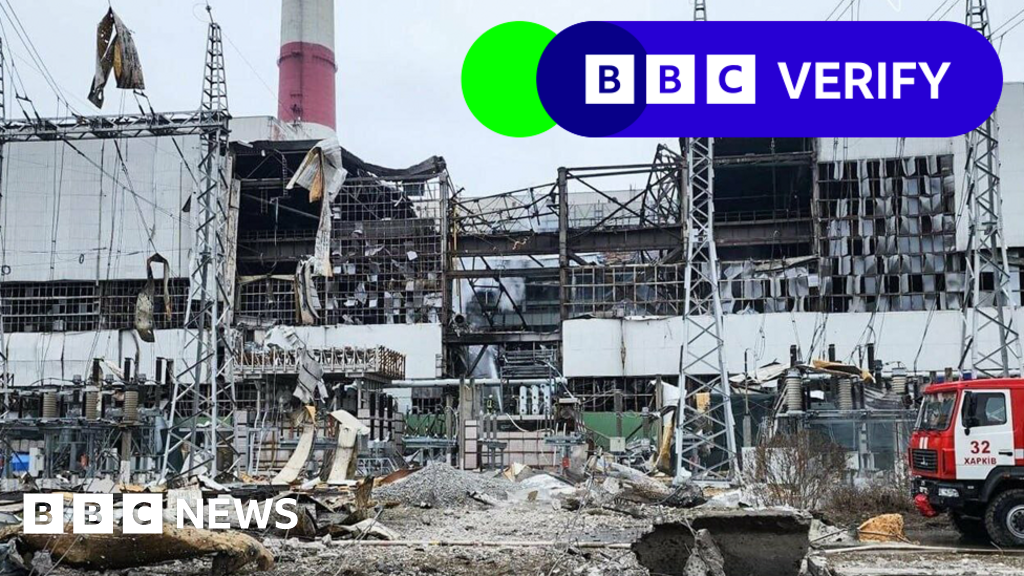Russia says troops enter border town near Kharkiv
Russia has said its forces have entered the north-eastern border town of Vovchansk, near Ukraine's second largest city Kharkiv.
Ukraine's military said it had "pushed the enemy back" from the northern outskirts of the town, adding it had "tactical successes" in several areas.
Russia has intensified its attacks on the region following Friday's surprise incursions across the border, seizing at least nine villages and settlements in one of the most significant ground attacks since its full-scale invasion of Ukraine began in February 2022.
Thousands of civilians have fled towards Kharkiv.
There are concerns among Ukrainian commanders about what could happen if Russian troops get within artillery-range of the city.
Ukraine's army has said that Russia has deployed "significant forces" - up to five battalions - in its latest offensive and has acknowledged Moscow's troops have had some "tactical success".
But in an evening statement, the army said Russia had lost more than 100 soldiers since the start of the day, adding that Ukrainian forces were restoring old positions.
It said fighting was ongoing in 12 areas and had spread to the settlement of Staritsa, to the west of Vochansk.
Earlier, it had said reserve forces were being moved to the Kharkiv region to reinforce its defences.
Vovchansk, located 74km (45 miles) from Kharkiv, has been heavily bombed in recent days and officials in the surrounding region say Russia is now targeting settlements with glide bombs.
While it is a significant town in the region, Vovchansk is not of specific military importance, though its capture would be a blow to Ukrainian morale.
Kharkiv regional head Oleh Syniehubov said Russia was deliberately trying to stretch the front line by attacking in small groups in new directions.
He told local TV that Ukrainian forces were holding Russian troops back but warned that fighting could spread to new settlements, according to Reuters.
On Telegram he described the situation as "quite complicated" with Russia continuing to advance.
Work is continuing to evacuate residents in the region, with nearly 6,000 people having already been evacuated, he said, adding that 30 settlements had been struck by mortar or artillery shelling.
Some 200-300 people remain in Vovchansk itself, he added.
While it is thought this Russian cross-border incursion is unlikely to result in Kharkiv being captured, their gradual approach on this new, north-eastern front line only increases the anxiety for those living there.
Residents fleeing towns and villages close to the fighting have been arriving in their hundreds at an aid hub in Kharkiv city.
They are being given food, and registering for shelter after leaving their homes.
Veniamin, an 87-year-old resident of Vovchansk told the BBC he had left the besieged town by bicycle on Sunday – cycling 15km to safety.
He said as well as heavy shelling "machine gun fire could be heard from both sides".
"I had to run because it was impossible to be there,” he said, adding the town had been cut off from electricity and water supplies.
Liuda, another resident of Vovchansk, fled the town with her family, who lived in a village nearby.
"We escaped when we heard machine guns, the fire was coming close," she said.
Liuda had remained in Vovchansk when the Russians first invaded in early 2022.
"We survived and got used to it," she said.
Life improved when Ukrainian forces returned later that year, but she said this new Russian offensive "was very scary".
Nadia, her husband and mother had fled the village of Liptsy – near to where Russian forces have also made another incursion across the border.
They packed their belongings, including two dogs, into an old rusting Lada car and made the journey to Kharkiv.
Her husband had wanted to stay “because everything we had would be lost” if they left.
However, she said they were told by the local administration to leave or risk being stranded.
Nadia said: "We lived under occupation in 2022, I don’t want to be under occupation again."
Kostyantyn Tymchenko, who has also left Vovchansk, said he was shocked by how close the fighting was.
"On the one side [of the Vovcha River] are [Russians], on the other - ours," he said.
"Tanks are constantly approaching, shooting back and then leaving. I thought it would be okay. I was shocked. I wish I had known in advance."
Away from Kharkiv, two people were killed by shelling in the Russian-controlled city of Donetsk in eastern Ukraine, the Moscow-installed mayor has claimed.
And at least three people were killed by a strike on an industrial zone in Krasnodon, known as Sorokyne in Ukrainian, a Russian-held part of eastern Ukraine, the Moscow-backed local governor said.
Separately, a Ukrainian security source said Ukrainian forces had struck an oil terminal and electrical substation in western Russia.
Russia also said it had shot down 31 Ukrainian drones over several regions in annexed Crimea.
Source: BBC
